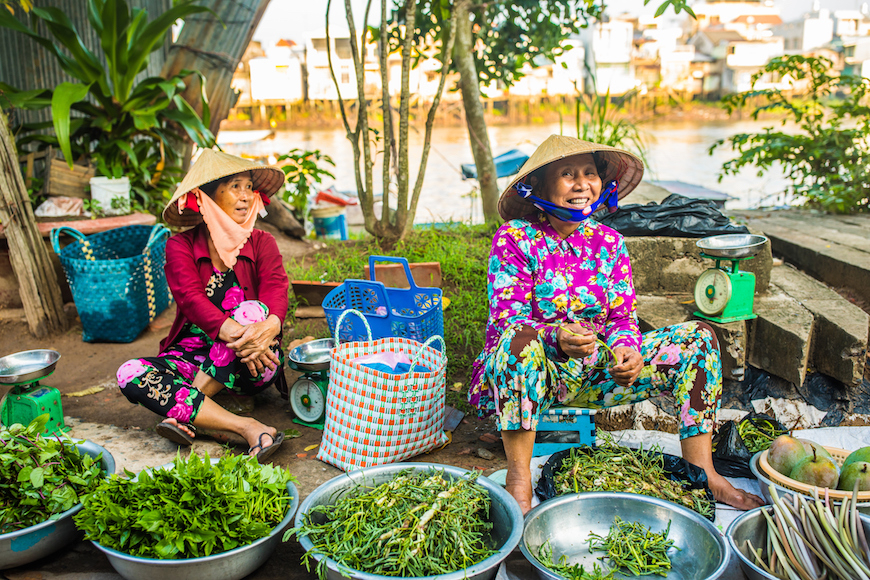
Vietnamese etiquette for travelers
Vietnamese people are recognized for being friendly and having a rich culture. This lengthy stretch of territory, divided into three unique districts, is a veritable treasure trove of legends and customs. If you're visiting Vietnam for the first time, having a basic understanding of the local customs will enable you to interact with the locals in a cordial and helpful manner. Here are the top eight suggestions to get you going.
Develop your face-saving skills.
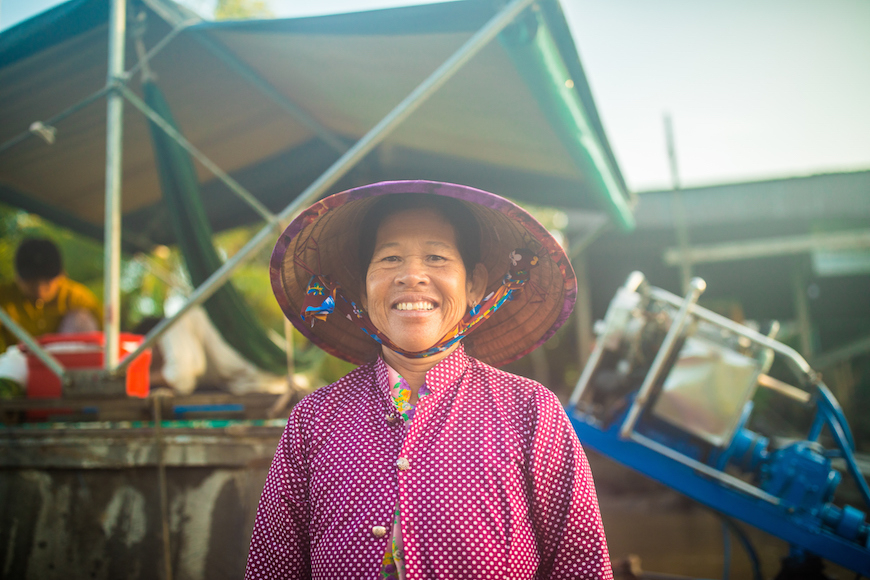 In Vietnam, "preserving face" has always played a significant role in daily life. Most Vietnamese will refrain from making public gestures that can damage their reputation. Keep your cool and steer clear of boisterous debates, causing a commotion, criticizing others for their errors, and bringing up anything that can make the locals feel embarrassed.
In Vietnam, "preserving face" has always played a significant role in daily life. Most Vietnamese will refrain from making public gestures that can damage their reputation. Keep your cool and steer clear of boisterous debates, causing a commotion, criticizing others for their errors, and bringing up anything that can make the locals feel embarrassed.
TIP: Men and women in Vietnam frequently avoid touching in front of other people because they abhor public shows of affection. Keep public shows of affection to a minimum in order to show respect for the community.
Take care when visiting temples or homes
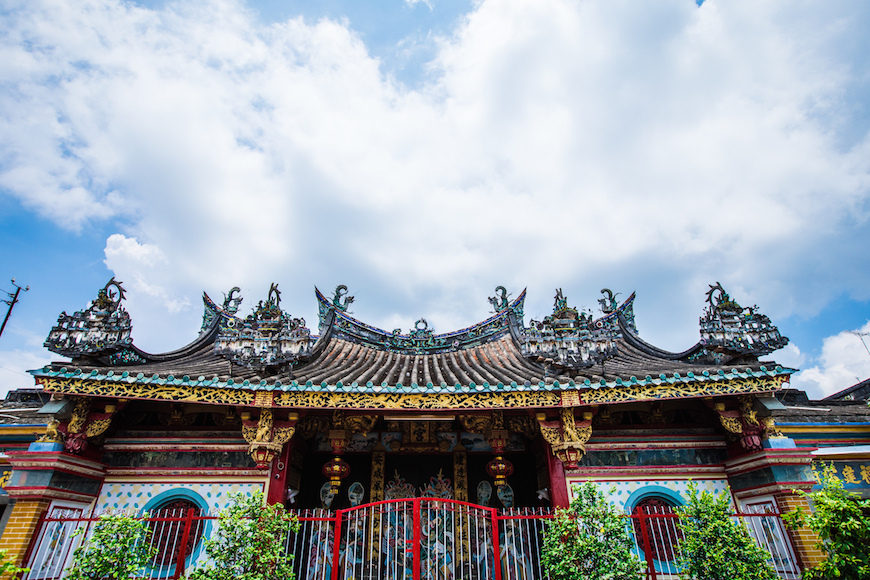 Just outside the door, remove your shoes before entering someone's home. Vietnamese families maintain shrines in their houses and businesses, some of which are located on the ground. Avoid stepping on these altars or moving in their path.
Just outside the door, remove your shoes before entering someone's home. Vietnamese families maintain shrines in their houses and businesses, some of which are located on the ground. Avoid stepping on these altars or moving in their path.
Wear modest attire and take off your shoes and hats before entering temples. Shoes are acceptable to bring along, however, they should not be worn on your feet.
Consult first before snapping pictures
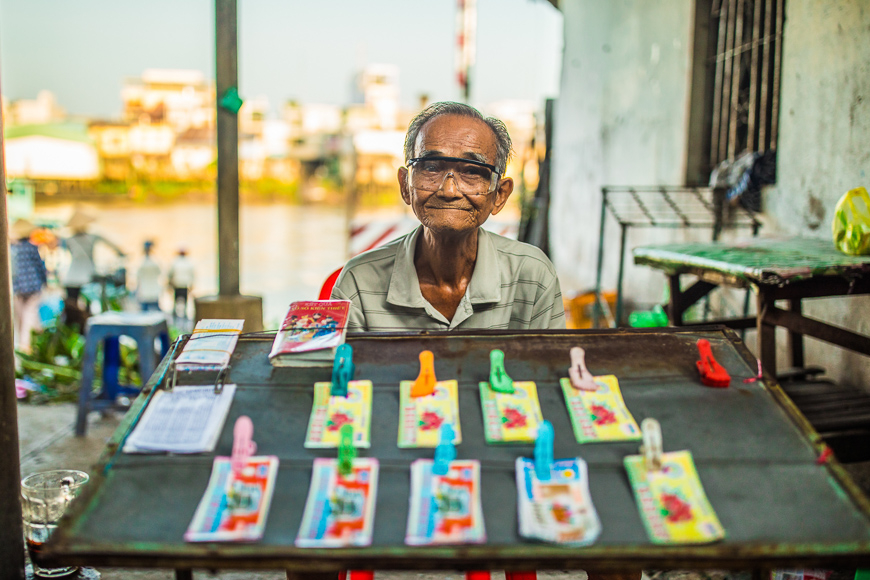 In Vietnam, there are a ton of gorgeous photo chances, and most people won't mind if you take their picture. However, respect their privacy and always ask before you raise your camera. This kind of photography shows your subjects the same respect that you would show to yourself, and it might be a special and fascinating opportunity to discover a little bit about someone's life.
In Vietnam, there are a ton of gorgeous photo chances, and most people won't mind if you take their picture. However, respect their privacy and always ask before you raise your camera. This kind of photography shows your subjects the same respect that you would show to yourself, and it might be a special and fascinating opportunity to discover a little bit about someone's life.
Put on Vietnamese clothing
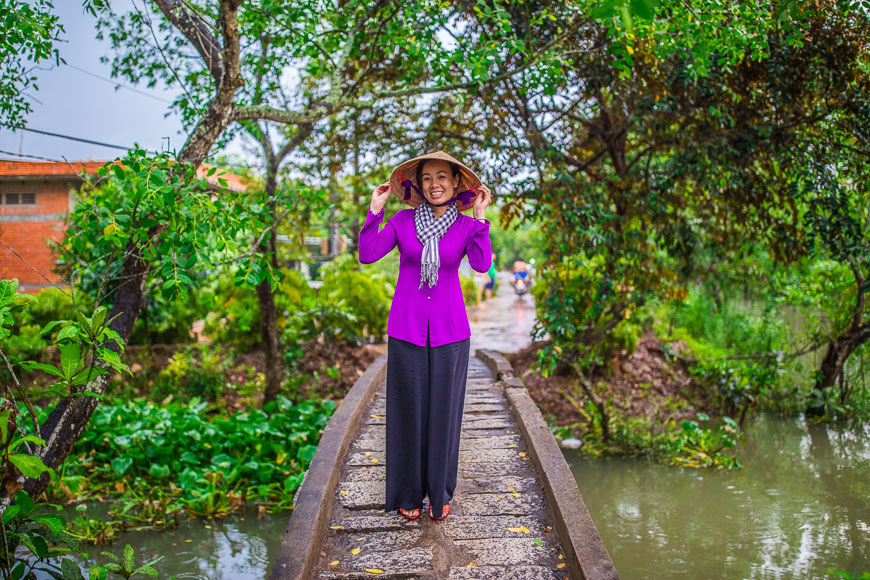 Modern fashion is valued in Vietnamese cities, where many young people dress in contemporary attire. Most Vietnamese people outside of urban areas are fairly traditional and modest. Your Vietnamese guests and friends will not take kindly to you if you wear visible undergarments, flimsy materials, or scant clothing.
Modern fashion is valued in Vietnamese cities, where many young people dress in contemporary attire. Most Vietnamese people outside of urban areas are fairly traditional and modest. Your Vietnamese guests and friends will not take kindly to you if you wear visible undergarments, flimsy materials, or scant clothing.
You can get a decent notion of what is appropriate in terms of attire and coverage by watching the people in the area where you are visiting. Foreign visitors should be aware that men should not be seen in public without shirts on, and that swimwear is only appropriate for the beach or your resort. Wearing attire that does not insult the natives is one way to demonstrate respect for Vietnamese traditions.
Eat in a polite manner
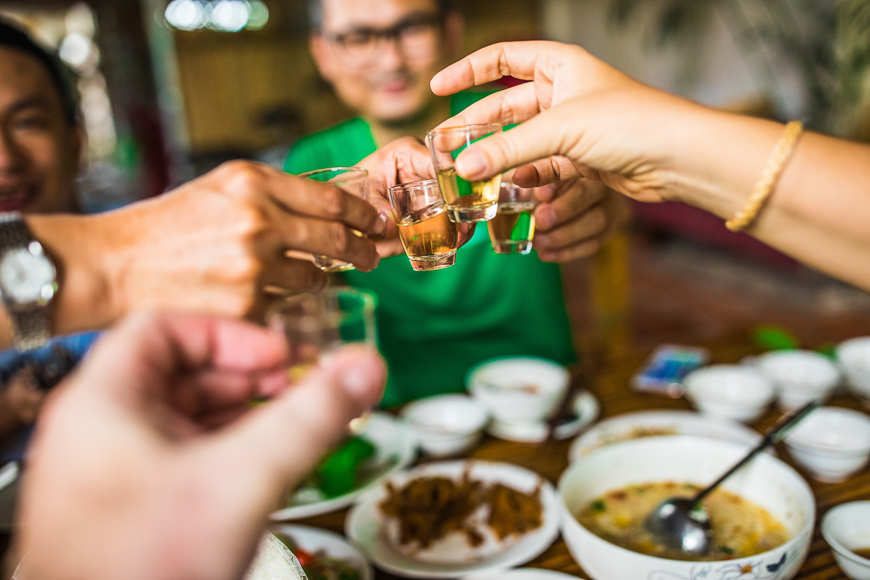 In Vietnam, sharing is the main focus of mealtime. The majority of meals consist of a variety of shared dishes, small rice bowls, and chopsticks for each diner. Pass food at the table with either both hands or your right hand (not your left), and if you're eating soup, hold your spoon in your left hand.
In Vietnam, sharing is the main focus of mealtime. The majority of meals consist of a variety of shared dishes, small rice bowls, and chopsticks for each diner. Pass food at the table with either both hands or your right hand (not your left), and if you're eating soup, hold your spoon in your left hand.
A host should bring you food, re-fill your glass, and spoon the nicest pieces of a dish into your bowl as examples of exemplary service. Simply state again nicely that you are extremely full if you wish to quit eating. The individual who sent the invitation typically foots the tab for social events. If not, the individual who pays is the most senior.
TIP: Tipping is more frequent in Vietnam among tour guides and at spas but less so in dining establishments. You are not required to tip in Vietnam, but you are welcome to do so if you believe the service was worth it.
Learn the appropriate greetings
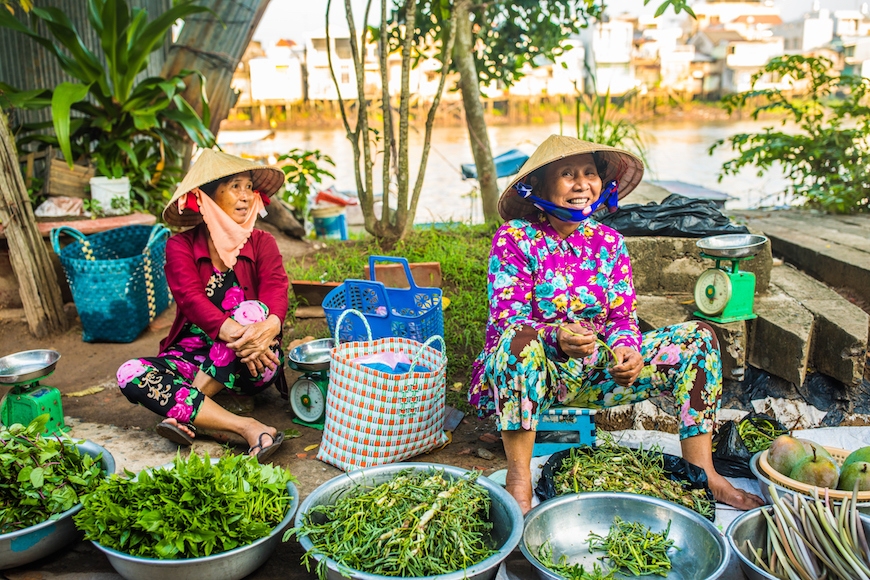 It's uncommon to hear the phrase "pardon me" in Vietnam. Instead, they say "hello you!" while using several "you" variations to convey respect.
It's uncommon to hear the phrase "pardon me" in Vietnam. Instead, they say "hello you!" while using several "you" variations to convey respect.
Depending on who you're speaking to, use one of the following variations:
-
For a male or female younger than you - Em ơi (em oi). Em means “younger sibling."
-
For a woman a bit older than you - Chị ơi (chi oi). Chị means “older sister."
-
For a man a bit older than you - Anh ơi (An oi). Anh means “older brother.”
-
For a woman old enough to be your aunt - Cô ơi (goh oi).
-
For a man old enough to be your uncle - Chú ơi (choo oi).
-
For a woman old enough to be your grandmother - Bà ơi (ba oi).
For a man who is old enough to be your grandfather - Ông ơi (om oi).
If you're confused about anything, just say "bn I (bang oi), which is Chinese for "hello friend."
Sensible use of your hands
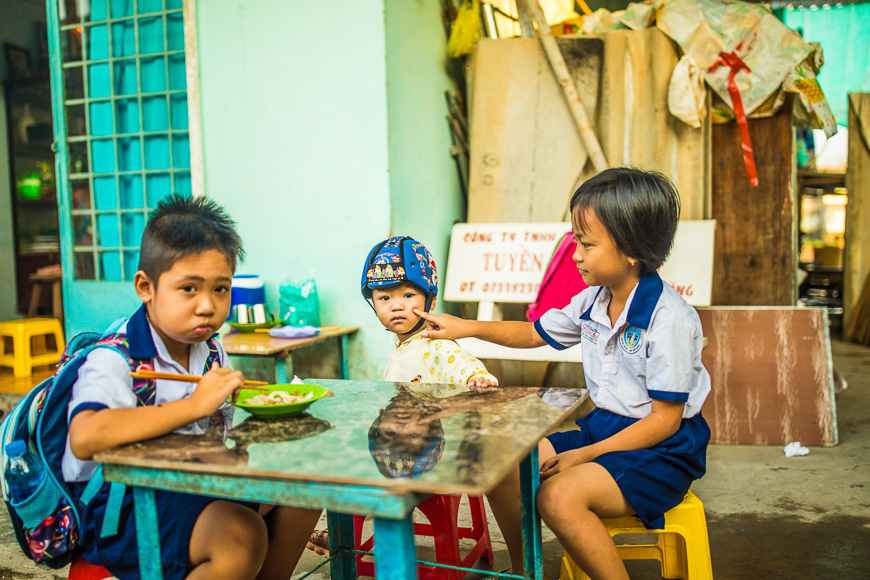 Even though the middle finger is not typically considered insulting in Vietnam, many Westerners frequently make the unflattering gesture of "fingers crossed" to express optimism. Keep your fingertips off it if you want good luck!
Even though the middle finger is not typically considered insulting in Vietnam, many Westerners frequently make the unflattering gesture of "fingers crossed" to express optimism. Keep your fingertips off it if you want good luck!
A good rule of thumb is to refrain from pointing at or touching individuals on the head or back, especially if they are older than you. Use your right hand or both of your hands when passing anything along rather than just one hand or your left.
Be welcoming and cheerful
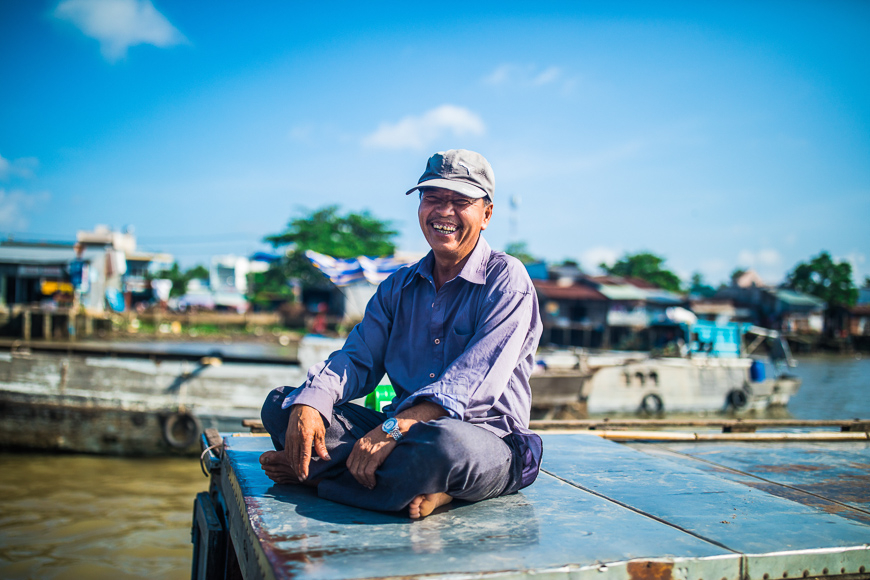 Although the Vietnamese like having a good time, they are also highly proud of their deeply ingrained traditions and work-ethical values. Some Vietnamese may be leery of visitors who might overstep the mark without understanding the nuanced cultural undercurrents at play. In Vietnam, a grin may go a long way, especially when communication is difficult. Simple greetings like "xin chào" or "thank you" convey your kindness and are frequently met with a smile from the Vietnamese.
Although the Vietnamese like having a good time, they are also highly proud of their deeply ingrained traditions and work-ethical values. Some Vietnamese may be leery of visitors who might overstep the mark without understanding the nuanced cultural undercurrents at play. In Vietnam, a grin may go a long way, especially when communication is difficult. Simple greetings like "xin chào" or "thank you" convey your kindness and are frequently met with a smile from the Vietnamese.
When drinking, the majority of Vietnamese will lift their glasses and "cheer" each time, taking a sip collectively rather than individually. Vietnamese people say "cheers" by using the word "do" (yo in the south and zo in the north). The phrase "mt, hai, ba, dô" is one of the most frequently heard in the nightlife of Vietnam. (One drink, two, three.)